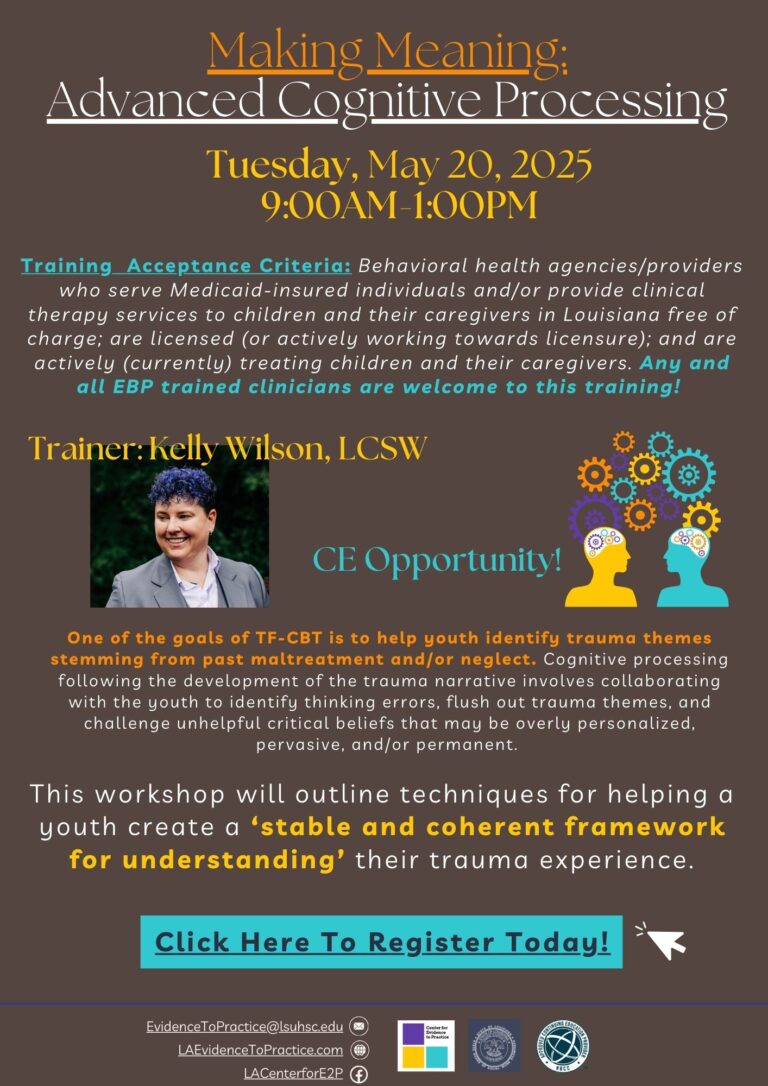Advanced Cognitive Processing
One of the goals of TF-CBT is to help a youth identify trauma themes stemming from past maltreatment and/or neglect. Advanced Cognitive processing following the development of the trauma narrative involves collaborating with the youth to identify thinking errors, flush out trauma themes, and challenge unhelpful critical beliefs that may be overly personalized, pervasive, and/or permanent. This workshop will outline techniques for helping a youth create a “stable and coherent framework for understanding” their trauma experience.
There will be no cost to agencies for the training itself; however, agencies must financially commit to the time and effort required to successfully complete the full training day.
Training Registration
The Narrative for Complex Trauma training will be held on Tuesday, May 20, 2025 from 9:00AM-1:00PM CDT. This training is limited to 30 participants. Registration will close once that threshold is met. If you would like to register, you can fill out the registration by clicking the button below.
Training Considerations
Please review the Training Guidelines and Expectations prior to attending training to ensure you are familiar and can adhere to them during training. Individuals who feel that they may not be able to adhere to these guidelines should consider not applying for this opportunity.
- Ensure a stable internet connection
- Use an updated web browser and install any required software
- Utilize a hands-free device such as a desktop, laptop, iPad (mobile devices not recommended)
- We will be using Zoom so ensure you check for updates prior to training
- Plan for backup internet and power options
- Share a contact number with staff and or group members for technical issues
- Create a quiet distraction free workspace
- Workspace lighting is better when it’s front facing and not back lit
- Choose comfortable, functional, and learner-friendly seating
- Please do not engage in training while operating a motor vehicle
- Please be in a confidential workspace like you would in a therapy session
- Download and review pre-training materials
- Consider printing the practice worksheets for practicum
- Have a notepad and pen ready for notes
- Save digital resources and materials for future reference
- Be punctual and return timely from assigned breaks
- Mute the microphone when not speaking
- Always keep your camera on as this is a CE requirement
- Ensure confidentiality and security
- Consider a headset with a microphone to enhance your audio experience
- Respect others’ background and appearance
- Be courteous during discussions
- Dress comfortably and appropriately
- Have snacks, hydrate, caffeinate if needed
- Rest well prior to training and prepare to rest after
- Consider not scheduling work or only light work after training daily

